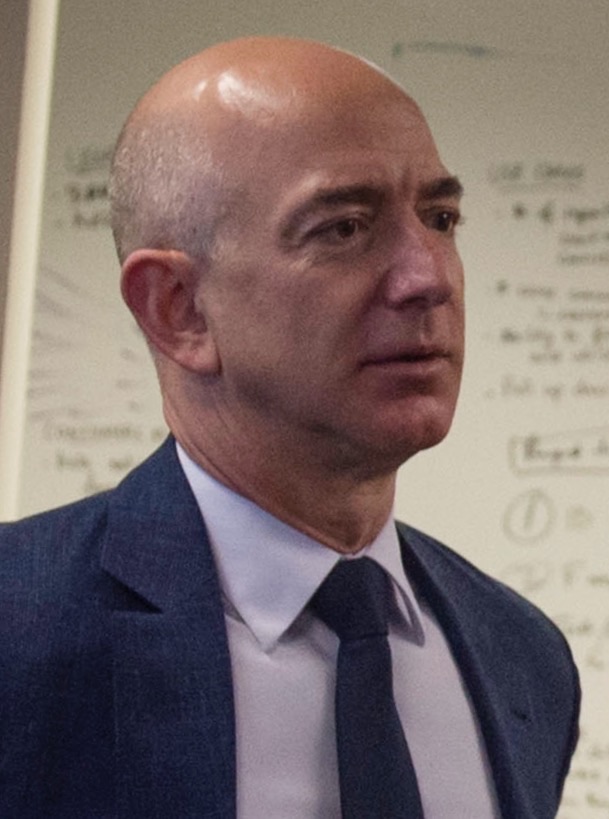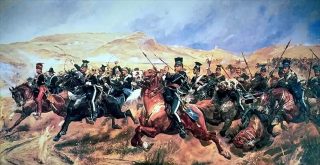When it comes to decision making, Jeff Bezos is quite comfortable relying on his intuition. This may come as a surprise given Amazon’s reputation for data analytics. Bezos has said in the past, “Our success at Amazon is a function of how many experiments we do per year, per month, per week, per day.”
Judging from this quote alone one might imagine that employees at Amazon are like scientist in the lab, carefully tracking results from experiments and analyzing the date to make each decision. However, that analogy would be misleading. Although the culture of experimentation at Amazon is strong, there are some decision that just don’t lend themselves to data analysis. Here is Bezos:
“All of my best decisions in business and in life have been made with heart and intuition – not analysis. When you can make a decision with analysis, you should do so, but it turns out in life that your most important decisions are always made with instinct, intuition, taste, heart.”
I get an opportunity to work with groups all over the US on decision making, and there is a tendency to place a premium on analysis. Intuition is often discounted or discredited altogether. There is a tendency to blame this on the Internet with its easy access to data and information. And there is some truth to that, but this problem pre-dates the Internet.
Albert Einstein recognized the problem in his time:
“The intuitive mind is a sacred gift and the rational mind is a faithful servant. We have created a society that honors the servant and has forgotten the gift.”
Although Einstein was extremely gifted at mathematics, his greatest breakthroughs came from thought experiments, where he imagined scenarios and then followed his intuition. Einstein’s Special theory of Relativity was derived from a young Einstein imagining he was speeding through space, riding alongside a beam of light. He was as much of a creative genius as he was a mathematical genius.
The same can be said of Steve Jobs. In his biography he is quoted as saying;
“Intuition is a very powerful thing, more powerful than intellect.”
And his 2005 Commencement Address to Stanford University he shared how he approached the biggest decisions in his life:
“You can’t connect the dots looking forward; you can only connect them looking backward. So you have to trust that the dots will somehow connect in your future. You have to trust in something — your gut, destiny, life, karma, whatever. This approach has never let me down, and it has made all the difference in my life.”
Intuition is not some kind of Magic 8-Ball throwing out random answers to life’s challenging decisions. There is science behind our intuition, and it helps to understand where intuition comes from in order to determine when we should listen to it. Intuition comes from a phenomena neuroscientist call emotional tagging. As we move from experience to experience, our brain is storing our emotional responses to each situation. When we go to decide, our brain searches past experiences that are similar to the one we face in the present. Our brains are searching for patterns among our stored emotional responses, and it is these patterns that manifest as our “gut feeling” or intuition.
So how does this playout in the world of business decision making? Jeff Bezos’ decision to acquire the Washington Post provides an excellent example. Don Graham, the CEO of the Washington Post initially reached out to Bezos to gauge his interest. Here is how Bezos describes it:
My friend Don Graham approached me through an intermediary and wanted to know if I would be interested in buying The Washington Post. And I sent back word that I would not because I didn’t really know anything about newspapers. And Don, over a series of conversations, convinced me that that was unimportant because we had, inside The Washington Post, so much talent that understands newspapers. That wasn’t what the problem was. What they needed was somebody who had an understanding of the internet. And so that was the first thing. That’s kind of how it got started.
I did some soul-searching. And again, my decision-making process on something like this would definitely be intuition and not analysis. The financial situation of The Washington Post at that time – this is 2013 – was very upside-down. And it’s a fixed-cost business and they had lost a lot of revenue over the previous five or six years, not through any fault of the people working there or of the leadership team. The paper had been managed very, very well. The problem was a secular one, the internet was just eroding all of the traditional advantages that local newspapers had, all of them. I mean, it was just taking away every gift that the local newspaper had was kind of systematically removed by the internet. And so that’s why you see this, it’s a – it’s a profound problem across local newspapers all around the country and in fact the world.
And so, I had to do some soul-searching. And I said, you know, is this something I want to get involved in? If I’m going to do it, I’m going to put some heart into it and some work into it. And I decided I would only do that if I really believed it was an important institution. And I said to myself, if this were a financially upside-down, salty snack-food company, the answer would be no.
But it was very important institution. It is the newspaper in the capital city of the most important country in the world. The Washington Post has an incredibly important role to play in this democracy. There’s just no doubt in my mind about that.
And so as soon as I had passed through that gate, I only had one more gate that I had to go through before telling Don [Graham, the CEO of the Washington Post] yes, and that was to look myself in a mirror and sort of think about the company and be sure that I was optimistic that it could work. Because, if it were hopeless, that would also be not something I would get involved in. And I looked at that and I was super optimistic.”
In essence, Bezos moved through a rational decision-making process, but at each major decision point he performed a gut check and relied heavily on his intuition. When it comes to the really big decision in your career, be open to what your intuition is telling you. Your intuition is providing insight and perspective that deserves to be heard.
Source Notes
Jeff Bezos at the Economic Club of Washington, September 13, 2018. (transcript)
Steve Jobs’ 2005 Commencement address to Stanford University
Image Source: By U.S. Department of Defense photo by Senior Master Sgt. Adrian Cadiz [CC BY 2.0 or Public domain], via Wikimedia Commons
About the Author
Sean P. Murray is an author, speaker and consultant in the areas of leadership development and talent management. Learn more at RealTime Performance.
Follow Me on Twitter: @seanpmurray111
Join my mailing list and be updated when I publish new articles.


